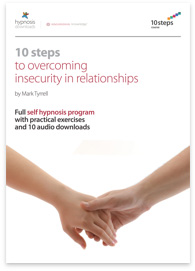So, What Are the 'Personality Types', Really?
What the ancient and modern worlds can teach us about personality types and how this can help us in everyday life
 Knowing about personality types can help you understand people better.
Knowing about personality types can help you understand people better.You've had or overheard this sort of conversation:
"Jane's got a new boyfriend!"
"Really? What is he like?"
What he 'is like', beyond his physical description, refers to his personality type. But what we really mean is "how does he seem/what are your first impressions of him?" We like to know what people are like.
Of course, what we hear Jane's (or whoever's) new boyfriend is like depends in part on the personality (and perhaps current mood) of the friend telling us what he is like.
A pessimist might tell us, "He seems too good to be true" (they might be right, of course); whilst someone with a more positive bent of mind might simply state: "He's lovely!"
We like to understand other people. And we have been trying for thousands of years. Why?
We're all psychologists at heart
We're all interested in human personality and motivation. Personality tests, quizzes, and analysis are massively popular search terms. Sit down in any public space for a little while and eavesdrop on conversations people have about the people in their lives.
When we listen to what they say about friends' or co-workers' behaviour and motivations, we quickly understand that we're all psychologists. You'll hear people talking about what other people 'are like' and 'how they behave'. We talk psychology all the time. Some of us more than others, of course.
- "She's an absolute nightmare!"
- "He's a control freak!"
- "I suppose he just wants to do things on his own terms now."
- "She only said that because she wants to seem caring."
- "I just can't understand him!"
- "Why does she act like that?"
- "Why is he so passive all the time?"
Even describing someone as a 'fool' or (much) worse is a clumsy and primitive form of personality profiling. But what do we mean by personality?
Different strokes for different folks
We are all different, but we are all the same. We all have similar emotional and physical needs, but underlying humanity's similitude are individual differences in basic temperament.
'Personality' means a relativity fixed set of feelings, behaviours, and responses. Personality can modify, and how we behave and feel can greatly depend on particular circumstances; but underlying that, people have long-term features as part of their personality 'make up' or 'profile'. These features are what make Bob at work or Auntie Flo or the guy next door who they are.
This is not to say that people can't adapt and change aspects of themselves, but an underlying 'proneness' to personality traits can remain. For example, the shy person can learn to relax socially, but still retain the propensity to focus on their own feelings. The chronic worrier can learn to use their imagination more productively, but may still be prone to creating imaginative scenarios.
Ideas about personality types have ancient roots (1). Conversations as to 'what people are like' go way back.
The four basic temperaments
The ancient Greek physician Hippocrates devised the seminal medical and psychological theory of the 'four humours', which he believed to be bodily fluids that caused our emotions, behaviours, and moods. So he saw emotionality and personality as connected to a person's physiology, rather than being 'all in the head'.
He felt people naturally had different levels of these fluids within them, causing differences in their personalities. Basically (and a little simplistically), the four types were:
Sanguine
Extroverted, cheerful, energetic, and emotional; sanguine people are prone to needing excitement and getting bored easily. They are creative and can also be great daydreamers. Despite their proneness to exuberance, they can be thoughtful and considerate, but not always terribly organized.
Sanguine folk, according to ancient Greek theory (a theory that was still alive and well in the Victorian era), have a preponderance of blood in their bodies, hence their personality profile.
Melancholic
According to Hippocrates, melancholia is caused by an excess of black bile in the body (yuck). Melancholics have a proneness to worry and introspection. They can be preoccupied with negative aspects of experience and the world. In modern parlance, the term has come to mean 'depressive' or experiencing a 'mood disorder'. Whilst feeling particularly melancholic, they might move very seldom and slowly.
Choleric
A larger quantity of yellow bile (yuck again) was thought to indicate the choleric personality. A choleric character was thought to be a man or woman of action; an energetic and active go-getting leader. Often charismatic, ambitious, and sometimes manipulative and ruthless, history's great political, military, and business personalities have been choleric.
Phlegmatic
Yes, you guessed it: a larger amount of bodily phlegm is behind (or should I say inside?) the phlegmatic personality. Nowadays, the term is still used to describe someone who is not prone to excitement, but rather more often calm and passive.
The phlegmatic person may be apathetic, cold, disinterested, and slow to act. A phlegmatic may be shy, but also content with the way things are. They tend to prefer consistency to change. They might make great administrators. They may not be the most exciting people, but tend to be reliable.
Since these ancient personality ideas, people have come along and adapted them (2) and also sought to blend and 'update' them (3). Although no scientific evidence has been found to link varying levels of physical substances to personality, I think it's fair to say that many people do indeed seem to have leanings toward the characteristics outlined by Hippocrates almost 2,500 years ago.
What else do we know about personality?
A ridiculously brief and incomplete history of personality profiling
Since Hippocrates's early attempts at personality profiling, his 'mother of all personality theories' has produced myriad offspring. For instance, the Enneagram system of personality profiling brought to the West by the mystic G. I. Gurdjieff.
The Enneagram is based on ancient Sufi ideas about personality and was later adapted to include nine personality types. It appears, according to Gurdjieff, to have ancient origins in the Hindu Kush (4). We don't know whether it was influenced by The Four Humours or developed entirely independently.
Astrology is also an ancient and modern, but not scientific, way of trying to understand what someone is like (as well as what fate has in store for them). In the 19th century, phrenology was an attempt to discover someone's personality from the bumps on their skull (5). More recently, Myers and Briggs personality profiling (based on the psychoanalytic theories of Swiss psychoanalyst Carl Jung) has used psychometric testing via self-assessment questionnaires to ascertain personality type. This has proved very popular in business.
The 'psychiatric Bible', the Diagnostic and Statistical Manual of Mental Disorders (DSM), also outlines 'personality disorders', which includes psychopathy (6).
So what's in favour right now?
The Big Five
Currently, the 'Big Five personality trait' theory (or Five Factor Model [FFM]) is popular within the field of psychology. It has the advantage of being empirically driven by research and study. The Big Five are:
- Openness (inventive/curious vs. consistent/cautious). Appreciation for art, emotion, adventure, unusual ideas, curiosity, and variety of experience.
- Conscientiousness (efficient/organized vs. easy-going/careless). A tendency to show self-discipline, act dutifully, and aim for achievement; planned rather than spontaneous behaviour.
- Extraversion (outgoing/energetic vs. solitary/reserved). Energy, positive emotions, surgency, and the tendency to seek stimulation in the company of others.
- Agreeableness (friendly/compassionate vs. cold/unkind). A tendency to be compassionate and cooperative rather than suspicious and antagonistic towards others.
- Neuroticism (sensitive/nervous vs. secure/confident). A tendency to experience unpleasant emotions easily, such as anger, anxiety, depression, or vulnerability.
Mind you, some of the above looks not entirely dissimilar to the ancient ideas of personality promoted 2,500 years ago.
Other ideas
We can also look at personality type as a continuum, with some people being so 'left-brained' that they find it hard to understand context, but may be very good at understanding detail and desiring routine; the extreme of this would be Asperger's Syndrome, a form of autism. The continuum might stretch through to more 'right-brained', creative, bigger-picture thinkers, 'arty types'; the extreme of which would be the ultimate creativity - that of schizophrenia. We are all said to be somewhere along this continuum.
It's also important to say that people tend to be a mixture of characteristics spanning more than one 'type'.
Low gainers vs. high gainers: Personality profiling gets technical
Because we can now map and 'read' the brain through such things as positron emission tomography (PET scanning), attempts have been made to understand personality as related to the inner workings of the brain. For example, it's been found that sensation-seeking extroverts have lower levels of arousal in an area of their brainstems than more withdrawn, less sensation-seeking introverts (7).
The reticular activating system (RAS) is tuned differently in low gainers (extroverts) versus high gainers (introverts). If your RAS is tuned low, you will get bored easily and seek excitement and sensation. But if there is a higher level of RAS arousal in your brainstem, you'll seek to keep things quiet and calm and avoid too much external stimulation and therefore be more introverted - there's already enough going on inside you.
So how useful is all this personality theory?
Nature vs. nurture
Personality is what you veer toward, but it is not your destiny - not completely. It's said that nature makes up about 50% of what we are like and that the rest is determined by environment and what we decide to do and be.
There is also an emerging science of 'epigenetics', which demonstrates the possibility that whilst we can't change our genetic inheritance (which affects both biology and temperament), we can affect how the DNA is expressed - without having to actually change the order of the DNA in its sequence (by having scientists poke around). Your behaviour and what you decide to do may influence how certain genes are expressed and, therefore, influence what you are like as a person (9).
Genes are not your destiny.
Some final words
As long as we don't over-label others (10) - seeing them through a narrow lens of what they are supposed to be like because we've labelled them as 'extrovert' or 'timid' or whatever - then we can use an understanding of personality to help us negotiate life.
I think there is some value to understanding that there are different types of people in the world and also understanding that you are a type of person; but within that type, you may have much more scope than you realize. And by getting to know what we are like, we can get an idea as to what kind of life we need to be living in order to feel fulfilled; being a square peg whilst frantically trying to squeeze into a small round hole is no fun.
We can also be more tolerant of others by understanding that not everyone is just like us, nor will like or dislike exactly the same things. It seems that nature needs lots of different types of people to fulfil different functions in life. If we were all blindingly creative dreamers or dynamic leaders, then human development on a societal level would stall. We need dreamers and visionaries, practical and methodical types, and all other types in between.
So next time you hear someone say, "What's he like?", you might like to consider all... or some... or none of the above - depending on what you are like.
To understand more about human psychology, take our free online 5-day hypnosis course.
10 Steps to Overcome Insecurity in Relationships course
Despite how much you love your partner, are you worried you're driving them away?...
References
- Ancient Egyptian and Mesopotamian ideas about personality have been discovered. See: van Sertima, Ivan (1992). The Golden Age of the Moor. Transaction Publishers. p. 17. ISBN 1560005815; and Sudhoff, Karl (1926). Essays in the History of Medicine. Medical Life Press, New York. pp. 67, 87, 104.
- For example, the 11th century Islamic polymath known in the West as Avicenna discussed melancholia in 'The Canon of Medicine', written more than a thousand years ago. He linked melancholia to anxieties and phobias and saw it as a "mood disorder" and suitable for psychological treatment. A more modern perspective.
- Tim LaHaye has attempted to blend the four basic temperaments or humours into 12 subcategories. See: LaHaye, Tim (1984). Your Temperament: Discover Its Potential. Tyndale Publishing.
- See: The Teachers of Gurdjieff by Rafael Lefort.
- See: The History of Phrenology on the Web by John van Wyhe, Ph.D.
- See my article, 'No strings on me: Is there a psychopath in your life?'.
- The original model was advanced by Ernest Tupes and Raymond Christal in 1961.
- See: Howard, Pierce J., Ph.D. The Owner's Manual for the Brain. p 25-26, 726. GA: Bard Press, 1994, 2000. See also Hans Eysenck's book, The Biological Basis of Personality.
- So far, most epigenetic research has focussed on rats. For instance, licking and grooming performed by the mother has been found to influence or 'switch on' the groomed rat's genome for either calm or anxious behaviour.
- See: 'Give a dog a bad name - the sticking power of labels'.







